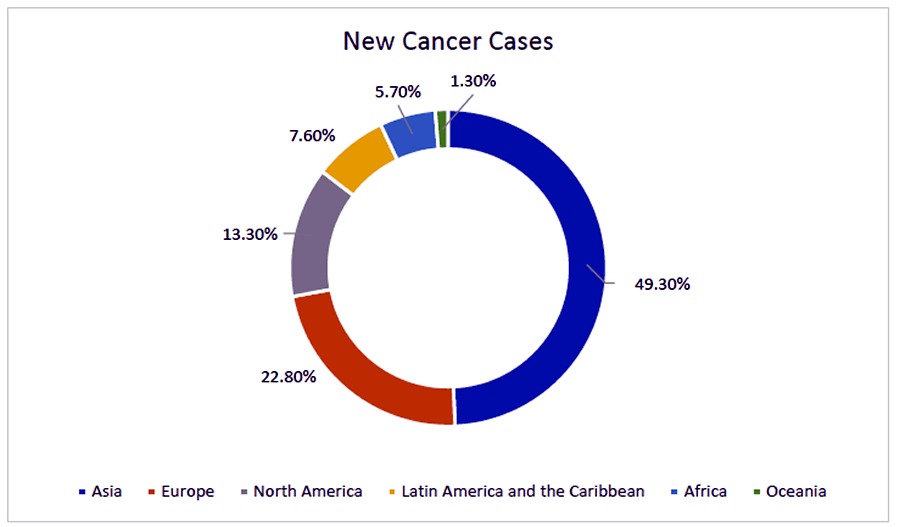When Yaw Bediako lost his father to liver cancer, he discovered the alarming lack of research into the disease in Africa, despite the fact that it causes some 700,000 deaths a year on the continent.
Fifteen years later, Bediako is leading Yemaachi Biotech, a Ghanaian company that aims to build the first and largest genetic and clinical cancer database in Africa, with information on up to 7,500 patients. The project, known as the Africa Cancer Atlas, will be free of charge to African researchers and will contribute to the development of more effective and equitable treatments.
A Gap in Genetic Research
Although Africa accounts for 17% of the world's population and has the highest genetic diversity, only 2% of the genomes analysed so far are from African people. This lack of data has limited the development of effective treatments for the continent's population.
Pathologist Patrick Kafui Akakpo, a breast cancer specialist in Ghana, points out that African women have a higher incidence of triple-negative breast cancer, an aggressive and difficult-to-treat type. However, the lack of clinical trials on the continent has prevented the generation of data to validate the efficacy of existing drugs in African patients.
Bediako also points out that this exclusion is rooted in structural inequalities and racism within the field of human genetics. The lack of inclusion in genetic studies not only affects Africans, but also limits knowledge about genetic variation in populations around the world.
Project Support and Challenges
The Africa Cancer Atlas has attracted the interest of the pharmaceutical industry. In 2021, GSK and Novartis announced research on genetic diversity in the response to malaria and tuberculosis drugs. In 2023, four pharmaceutical companies donated $20 million to sequence 500,000 genomes of people of African descent.
While Bediako seeks financial support from these companies, it is aware of the ethical challenges. Aida Manu, Yemaachi's chief operating officer, recognises the vulnerability of patients, both because of their disease and their financial situation, and emphasises that the aim is to ensure that the community benefits from the research.
Another obstacle is the lack of confidence of international investors in Africa. David Hutchful, co-founder of the company, describes this phenomenon as the "African tax", referring to unjustified doubts about the viability of the project.
Despite these challenges, the Yemaachi team is motivated by the possibility of transforming cancer research and changing the perception of Africa. "My dream is that one day there will be cancer treatments around the world developed from knowledge generated in Africa," says Bediako.

Source: theguardian.com 26/03/2025
